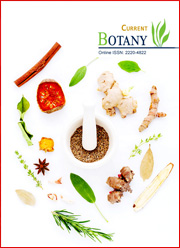Biological approaches of termite management: A review
DOI:
https://doi.org/10.25081/cb.2021.v12.7021Keywords:
Termites, Termiticides, Botanical termiticides, Microbial termiticides, Sustainable developmentAbstract
For increased crop production, the role of chemical termiticides cannot be neglected as they have provided the efficient way to achieve green revolution. But the present scenario has forced mankind to search for alternative options. While keeping in mind the concept of sustainable agriculture, pest management including termites and other phyto-diseases etc. needs to be focused. For the achievement of the above stated goal, eco-friendly and cost-effective strategies need to be emphasized. Biopesticidal agents that mainly comprise of herbal and microbial formulations are known to exhibit anti termite activity and have a pivotal role in the production of organic food products. In order to reduce the chemical consumption, the vast area of biological alternatives needs to be explored as they provide us with many beneficial aspects like sustainability, suitable application, biodegradable nature, target specificity etc. Further, the bioactive components of such biological agents can later be used as commercially viable termiticides in the form of formulations. These herbal and microbial termiticides are effective and have immense scope to be used in future for sustainable development.
Downloads
Published
How to Cite
Issue
Section
Copyright (c) 2021 Preeti Mishra, Monica Verma, Saket Jha, Arpita Tripathi, Anand Pandey, Anupam Dikshit, Satyawati Sharma

This work is licensed under a Creative Commons Attribution-NonCommercial 3.0 Unported License.



 .
.